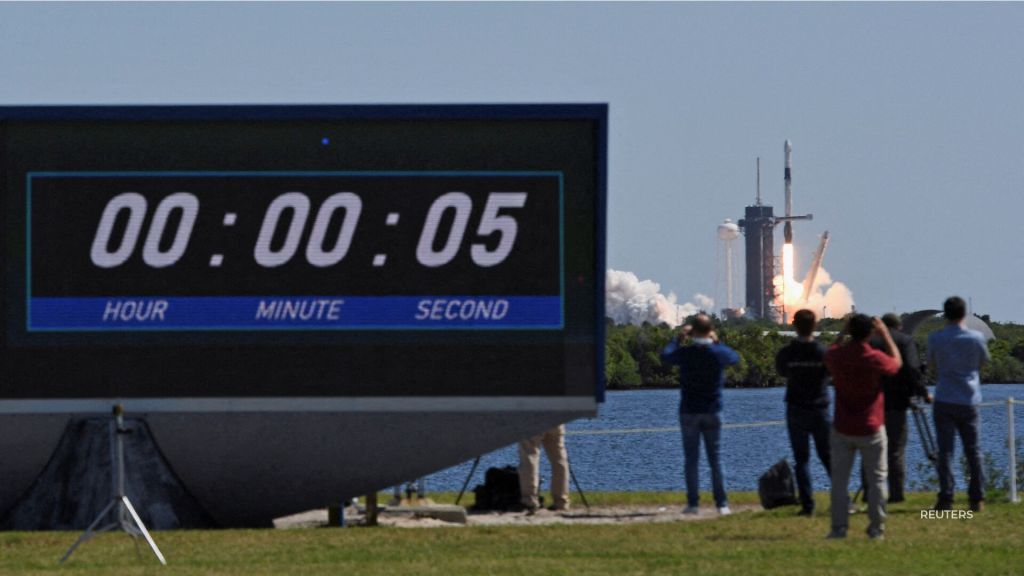SpaceX launched its first private charter flight to the International Space Station on Friday. The four-man team blasted off on Friday for more than a week’s stay as NASA joins Russia in hosting guests at the world’s most expensive tourist destination.
If all goes as planned, the three rich businessmen and their escort, retired NASA astronaut Michael Lopez-Alegria, will arrive at the space station on Saturday, after a 20-hour-plus flight, and the autonomously operated Crew Dragon will dock with the orbiting outpost some 250 miles above the Earth.
SpaceX, the rocket company founded in 2002 by billionaire Elon Musk, was directing mission control for the flight from its headquarters near Los Angeles. NASA, besides furnishing the launch site, will assume responsibility for the astronauts once they rendezvous with the space station to undertake eight days of science and biomedical research while in orbit.
The three ‘space tourists’ include an American, Canadian and Israeli who run investment, real estate and other companies. They’re paying $55 million each for the rocket ride and accommodations, all meals included.
The mission, representing a partnership among Axiom, SpaceX and NASA, has been touted by all three as a major step in the expansion of commercial space ventures collectively referred to by insiders as the low-Earth orbit economy, or “LEO economy” for short.
Friday’s launch also stands as SpaceX’s sixth human space flight in nearly two years, following four NASA astronaut missions to the space station and the “Inspiration 4” launch in September that sent an all-civilian crew to orbit for the first time. That flight did not dock with ISS.
While the space station has hosted civilian visitors from time to time, the Ax-1 mission will mark the first all-commercial team of astronauts to use ISS for its intended purpose as an orbiting research laboratory.
Launched to orbit in 1998, the space station has been continuously occupied since 2000 under a U.S.-Russian-led partnership including Canada, Japan and 11 European countries.
